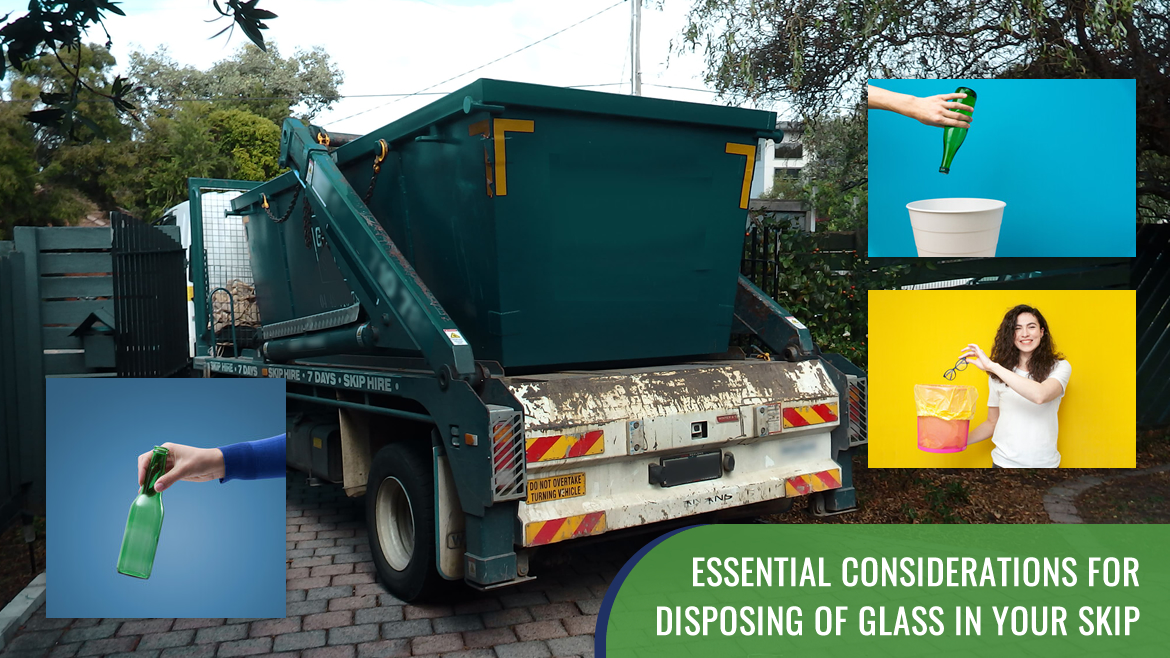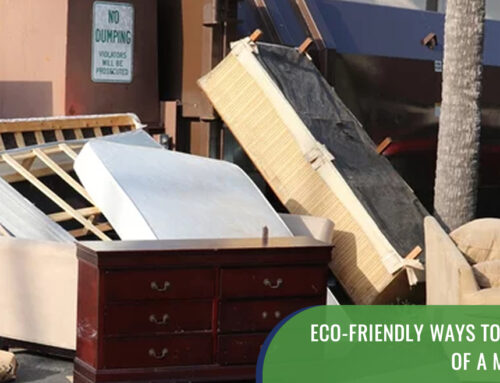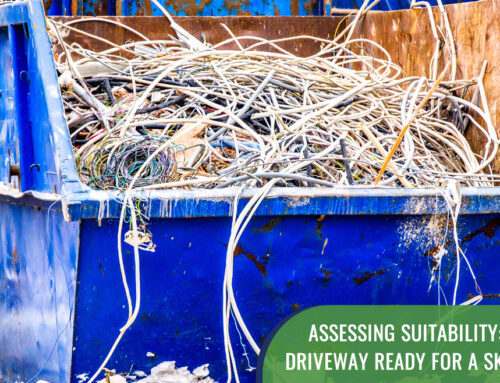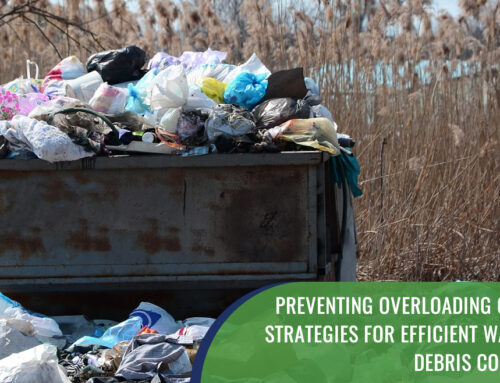Disposing of glass can be a potentially hazardous task if not handled with care. Whether you are renovating your home, undertaking a construction project, or simply decluttering, it’s crucial to take certain precautions when disposing of glass in a skip. By following some essential guidelines, you can ensure safety, prevent accidents, and promote responsible waste management.
This article highlights the key considerations to keep in mind when disposing of glass in your skip.
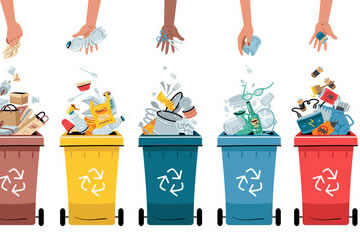
Separate Glass from Other Materials:
To facilitate the recycling process, it’s essential to separate glass from other waste materials in your skip. Create a designated area or container within the skip solely for glass items. This separation prevents contamination and enables efficient recycling of glass later on.
Avoid Overfilling the Skip:
Be mindful of the skip’s weight capacity and avoid overfilling it with glass or any other materials. Overloading the skip can lead to safety hazards during transportation and potentially cause damage to property or equipment. Always follow the skip provider’s guidelines to ensure safe disposal.
Use Suitable Containers for Glass:
Consider using dedicated containers or boxes specifically designed for glass disposal. These containers should be sturdy and able to withstand the weight and sharp edges of glass items. Securely seal the containers to prevent glass shards from protruding or falling out.
Tape or Wrap Fragile Glass:
For extra safety measures, tape or wrap fragile glass items such as mirrors or glass panels. This will help minimize the risk of breakage during transportation and disposal. Reinforcing weak points with tape can provide additional stability and protection.
Avoid Mixing Different Types of Glass:
Different types of glass, such as window panes, drinking glasses, or glassware, may have varying properties. To ensure proper recycling, avoid mixing different types of glass together. Separating them makes it easier to sort and recycle the glass based on its composition.
Inform Skip Provider:
When ordering a skip, it is highly suggested that you inform us about the presence of glass and its quantity. This allows them to make necessary arrangements for safe collection and disposal. Skip providers may have specific instructions or guidelines for glass disposal, so it’s crucial to communicate your requirements in advance.
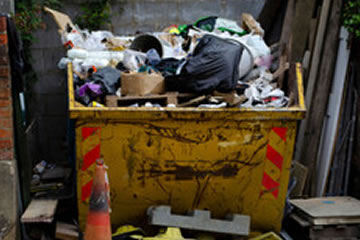
Consider Recycling Options:
Glass is highly recyclable and can be transformed into new glass products or used as aggregate in construction materials. Check with local recycling facilities or waste management centers to determine the best recycling options for your glass waste. By recycling glass, you contribute to environmental sustainability and minimize the need for raw material extraction.
Conclusion:
Disposing of glass in a skip requires careful attention to safety and responsible waste management practices. By following these guidelines, you can minimize the risk of injuries, prevent contamination, and support recycling efforts. Remember to wear appropriate protective gear, separate glass from other waste, avoid overfilling the skip, and inform your skip provider about the presence of glass. By taking these precautions, you can ensure the proper disposal of glass while promoting environmental sustainability.
Want to hire a skip? Reach out to our team today at 0208 686 9444


